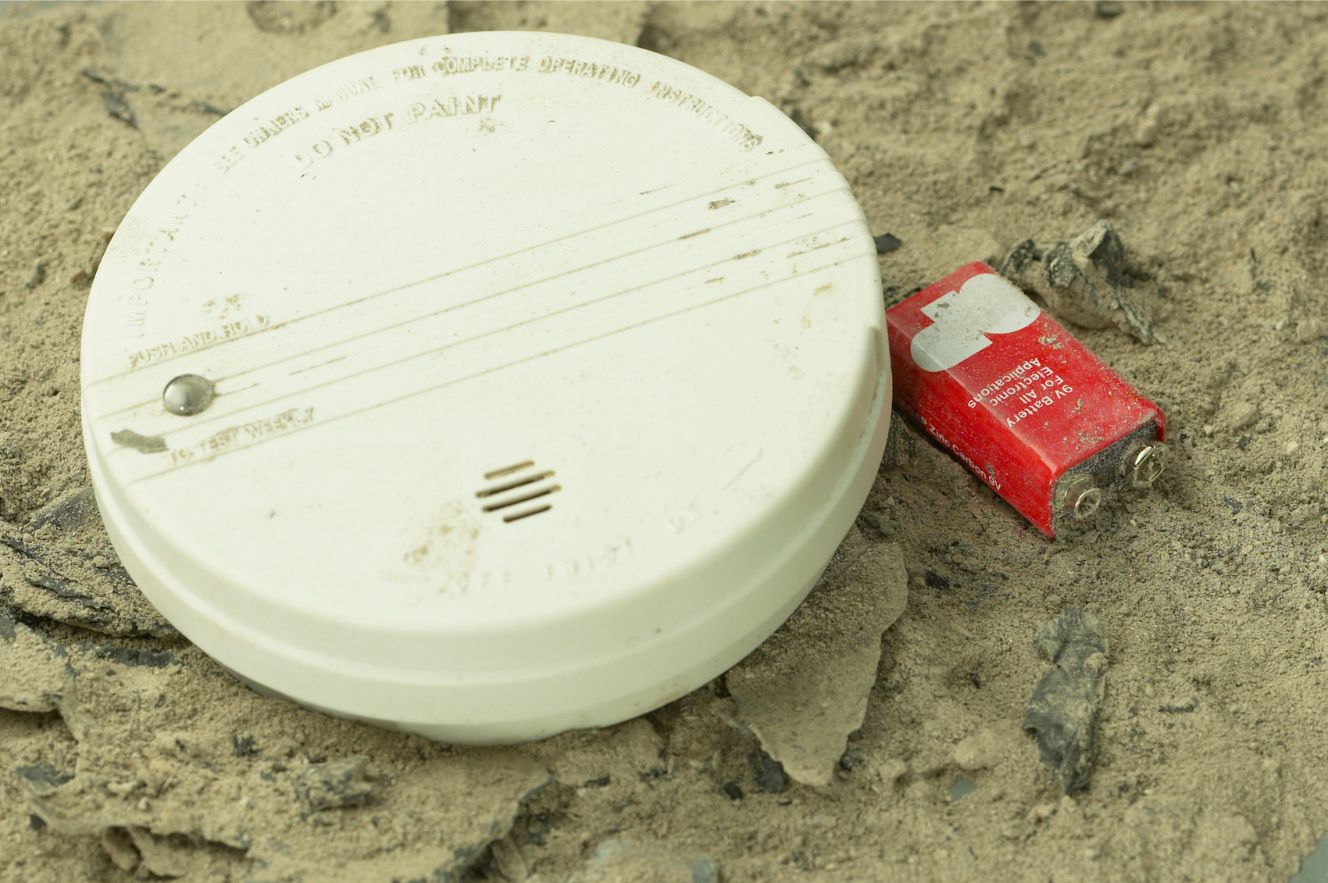

Articles
Why Would A Hard-Wired Smoke Detector Beep?
Modified: February 24, 2024
Find out why hard-wired smoke detectors can beep and learn how to troubleshoot the issue. Read more in our informative articles.
(Many of the links in this article redirect to a specific reviewed product. Your purchase of these products through affiliate links helps to generate commission for Storables.com, at no extra cost. Learn more)
Introduction
A hard-wired smoke detector is an essential safety feature in any home or building. It is designed to alert occupants in the event of a fire or smoke, ensuring their safety and allowing for prompt action to be taken. However, there may be instances when a hard-wired smoke detector starts beeping unexpectedly, causing confusion and concern among homeowners.
Understanding the reasons behind the beeping can help identify and resolve the issue. In this article, we will explore the common reasons why a hard-wired smoke detector may beep and what actions can be taken to rectify the situation.
Key Takeaways:
- Regularly maintaining your hard-wired smoke detector is crucial for optimal functionality. From replacing batteries to addressing false alarms, proactive care ensures reliable protection for your home and family.
- Promptly addressing beeping in your hard-wired smoke detector is essential for home safety. Whether it’s a low battery, poor connection, or false alarm, understanding and resolving the issue ensures continuous protection against fire and smoke emergencies.
Read more: Why Does A Smoke Detector Beep?
Common Reasons for Beeping
There are several common reasons why a hard-wired smoke detector may beep. It is important to investigate and address the cause of the beeping promptly to ensure the proper functioning of the device. Here are some common reasons you may encounter:
- Low battery: Even though a hard-wired smoke detector is connected to your home’s electrical system, it still relies on a backup battery to function in case of a power outage. If the battery is running low, the smoke detector will emit a beeping sound to alert you to replace the battery. This is a safety feature to ensure that your smoke detector continues to operate even during a power failure.
- Poor connection: Over time, the wiring in the smoke detector or the connection between the detector and the electrical system may become loose or damaged. When this happens, the smoke detector may produce a beeping sound to indicate a problem with the connection. Inspecting and tightening any loose connections can resolve this issue.
- Malfunctioning smoke detector: Just like any electrical device, smoke detectors can malfunction. If the beeping persists even after replacing the battery and ensuring a proper connection, it is possible that the smoke detector itself is faulty. In such cases, it is recommended to replace the smoke detector with a new one to ensure reliable smoke detection in your home.
- False alarm: Sometimes, a hard-wired smoke detector may beep due to a false alarm. This can occur if dust, humidity, or cooking smoke trigger the smoke detector’s sensor. In such cases, carefully cleaning the detector, ensuring proper ventilation in the area, or relocating the detector away from cooking appliances can help prevent false alarms.
- Power outage: During a power outage, your hard-wired smoke detector will continue to operate on its backup battery. However, if the battery is almost depleted, the smoke detector may start beeping to indicate the power failure. In this situation, it is important to replace the battery or resolve the power issue to stop the beeping.
Low Battery
One of the most common reasons for a hard-wired smoke detector to beep is a low battery. Despite being connected to your home’s electrical system, smoke detectors usually have a backup battery to ensure continuous operation during a power outage. When the battery becomes low, the smoke detector will emit a beeping sound to notify you that it needs to be replaced.
Replacing the battery is a simple and important maintenance task that should not be overlooked. Here’s how you can replace the battery in your hard-wired smoke detector:
- Locate the smoke detector. It is typically installed on the ceiling or wall, in common areas such as hallways or bedrooms.
- Use a ladder or step stool if the detector is out of reach.
- Locate the battery compartment on the back or side of the smoke detector.
- Open the compartment and remove the old battery.
- Check the battery type recommended by the manufacturer and obtain a replacement battery of the same type.
- Insert the new battery into the compartment, ensuring the correct polarity (+/-) is aligned.
- Close the battery compartment securely.
- Test the smoke detector by pressing the test button. If the battery replacement was successful, the detector will sound an alarm.
- If the beeping has stopped, the issue has been resolved. If the beeping persists, there may be an additional problem with the smoke detector that needs to be addressed (such as a loose connection or malfunction).
It is important to note that smoke detector batteries should be replaced regularly, even if the low battery warning beep has not been triggered. It is generally recommended to replace the batteries at least once a year, or as per the manufacturer’s instructions. Regularly testing the smoke detector and being proactive about battery replacement will ensure optimal performance and the safety of your home.
Poor Connection
Another common reason for a hard-wired smoke detector to beep is a poor connection. Over time, the wiring in the smoke detector or the connection between the detector and the electrical system may become loose or damaged. When this happens, the smoke detector may produce a beeping sound to indicate a problem with the connection.
To address a poor connection issue with your hard-wired smoke detector, follow these steps:
- Turn off the power to the smoke detector. Locate the circuit breaker that controls the electrical circuit connected to the detector and switch it off.
- Using a ladder or step stool, remove the smoke detector from its mounting bracket. The mounting bracket is usually secured by screws or clips.
- Inspect the wiring connections on the back of the smoke detector. Check for any loose or corroded wires.
- If you find any loose wires, tighten the connections by firmly twisting the wires together. If the wires are corroded, gently clean them using a wire brush or emery cloth.
- While inspecting the wiring connections on the detector, also check the wiring connections in the electrical box. Ensure that the wires are securely connected.
- Once the connections are tightened and cleaned, reattach the smoke detector to the mounting bracket.
- Turn on the power to the smoke detector by flipping the circuit breaker back to the “on” position.
- Test the smoke detector by pressing the test button. If the connection issue was resolved, the beeping should no longer occur.
- If the beeping persists, there could be an additional problem with the smoke detector, such as a malfunction. In such cases, it may be necessary to replace the smoke detector with a new one.
Regularly inspecting the wiring connections of your hard-wired smoke detector can help prevent poor connections and ensure that the device functions properly. If you are unsure about handling electrical connections, it is advisable to consult a qualified electrician for assistance.
If a hard-wired smoke detector is beeping, it could be due to a low battery, dust or debris buildup, or a malfunction. Check the battery, clean the detector, and if the issue persists, consider replacing the unit.
Malfunctioning Smoke Detector
Despite being designed to provide reliable smoke detection, smoke detectors can occasionally malfunction. If the beeping from your hard-wired smoke detector persists even after replacing the battery and ensuring a proper connection, it is possible that the smoke detector itself is faulty. In such cases, it is recommended to replace the smoke detector with a new one to ensure reliable smoke detection in your home.
When dealing with a malfunctioning smoke detector, here are a few steps you can take:
- Ensure that the beeping is indeed coming from the smoke detector. Sometimes, other electronic devices or appliances in your home can produce sounds that mimic smoke detector beeping.
- Locate the manufacturer’s information on the smoke detector. This can typically be found on the back of the device or in the documentation that came with it.
- Contact the manufacturer’s customer support or visit their website for troubleshooting steps specific to your smoke detector model. They may be able to provide guidance on resolving common issues or determine if your smoke detector needs to be replaced.
- If your smoke detector is still under warranty, contact the manufacturer to inquire about a replacement. Keep in mind that warranties typically cover defects in materials or workmanship, but may not cover damage due to improper installation, tampering, or natural wear and tear.
- If your smoke detector is not under warranty or if the manufacturer recommends replacement, purchase a new smoke detector that meets the necessary safety standards and regulations.
- Follow the manufacturer’s instructions for installing the new smoke detector. It may require mounting on the ceiling or wall and connecting the wiring to the electrical system.
- Test the new smoke detector to ensure it is functioning properly by pressing the test button.
- Regularly test and maintain the new smoke detector according to the manufacturer’s instructions to ensure ongoing safety and reliability.
Replacing a malfunctioning smoke detector is crucial for the safety of your home and the well-being of its occupants. By taking prompt action and having a functioning smoke detector in place, you can have peace of mind knowing that your home is protected in the event of a fire or smoke.
Read more: How To Replace A Hard-Wired Smoke Detector
False Alarm
Sometimes, a hard-wired smoke detector may beep due to a false alarm. False alarms can occur when the smoke detector’s sensor is triggered by factors other than smoke or fire, such as dust, humidity, or cooking smoke. While false alarms can be inconvenient and disrupt the peace of mind, they are an indication that your smoke detector is working properly.
To reduce the occurrence of false alarms and address the beeping, consider the following steps:
- Identify the source: When the smoke detector beeps, carefully observe the area to determine if there is any visible smoke or signs of fire. If there are no signs of smoke or fire, it is likely a false alarm.
- Clean the smoke detector: Dust and debris accumulated on the smoke detector’s sensor can trigger false alarms. Gently clean the detector using a soft brush or compressed air to remove any dust or debris that may be interfering with its operation. Be sure to follow the manufacturer’s instructions for cleaning.
- Improve ventilation: Poor ventilation in the area where the smoke detector is installed can also lead to false alarms. Ensure that the area is well-ventilated to prevent the buildup of smoke or steam from triggering the sensor. You can use exhaust fans or open windows to improve air circulation.
- Relocate the smoke detector: If the false alarms persist even after cleaning and improving ventilation, consider relocating the smoke detector to a different area of the house. Move it away from the kitchen or bathroom, as these areas are more prone to producing smoke or steam during cooking or bathing.
- Refer to the user manual: Consult the user manual provided by the manufacturer for specific troubleshooting steps and guidance on minimizing false alarms for your specific smoke detector model.
If the beeping persists despite taking these steps, it is possible that there is an issue with the smoke detector itself. In such cases, consider contacting the manufacturer’s customer support for further assistance or consider replacing the smoke detector with a new one.
While false alarms can be frustrating, it is essential to remember that they are a sign that your smoke detector is sensitive and capable of detecting potential dangers. By implementing the above steps, you can minimize the occurrence of false alarms and ensure that your smoke detector responds accurately in the event of a real fire or smoke emergency.
Power Outage
During a power outage, your hard-wired smoke detector will continue to operate on its backup battery. However, if the battery is almost depleted, the smoke detector may start beeping to indicate the power failure. This is an important safety feature to ensure that your home remains protected even during power outages.
If your hard-wired smoke detector is beeping due to a power outage, follow these steps:
- Check the status of other electrical devices in your home. Verify if the power outage is affecting all the appliances and lights or if it is limited to specific areas.
- Ensure that the power outage is not due to a tripped circuit breaker or a blown fuse. Check the electrical panel and reset any tripped breakers or replace any blown fuses.
- If the power outage is a result of a utility disruption, it is essential to wait for the power to be restored. In most cases, the beeping will stop once the power is back on.
- If the beeping continues despite the power being restored, it may indicate that the backup battery of the smoke detector needs replacement. Follow the instructions provided in the previous section on “Low Battery” to replace the battery.
- After replacing the battery, test the smoke detector by pressing the test button. If the beeping has stopped, your smoke detector is functioning correctly. If the beeping persists, there may be an additional issue that needs to be addressed.
- In situations where the power outage lasts for an extended period, it is important to monitor the status of the backup battery. Keep track of the battery’s lifespan and replace it before it runs out to ensure continuous functionality of your smoke detector.
- If the beeping continues despite taking these steps, there may be an underlying problem with the smoke detector itself. Consider contacting the manufacturer’s customer support or consult a professional electrician for further assistance.
Power outages can be unexpected, and it’s crucial to have a functioning smoke detector with a backup battery to ensure your safety. By addressing the beeping caused by a power outage promptly and maintaining a properly functioning backup battery, you can have peace of mind knowing that your smoke detector is ready to protect you and your home in case of any emergency.
Conclusion
A hard-wired smoke detector is a vital component of any home’s safety system. While it is designed to provide continuous protection and peace of mind, there are situations where the smoke detector may emit beeping sounds, indicating a problem or requiring attention.
In this article, we explored several common reasons why a hard-wired smoke detector may beep. These reasons include low battery, poor connection, malfunctioning smoke detector, false alarms, and power outages. Understanding these reasons can help you identify the cause of the beeping and take appropriate action to rectify the issue.
It is important to regularly maintain your hard-wired smoke detector to ensure optimal functionality. This includes replacing the battery at least once a year, checking and tightening connections, cleaning the detector, and addressing any issues promptly. By staying vigilant and proactive, you can ensure that your smoke detector functions properly and provides the highest level of safety for you and your family.
If the beeping from your smoke detector persists despite following troubleshooting steps, it is recommended to consult with the manufacturer’s customer support or seek assistance from a professional electrician. They can provide further guidance and help resolve the issue.
Remember, a properly functioning smoke detector is a crucial asset in protecting against fire and smoke emergencies. Regular maintenance and prompt attention to any beeping sounds will help ensure the effectiveness and reliability of your smoke detector, providing you with the peace of mind you deserve.
Frequently Asked Questions about Why Would A Hard-Wired Smoke Detector Beep?
Was this page helpful?
At Storables.com, we guarantee accurate and reliable information. Our content, validated by Expert Board Contributors, is crafted following stringent Editorial Policies. We're committed to providing you with well-researched, expert-backed insights for all your informational needs.
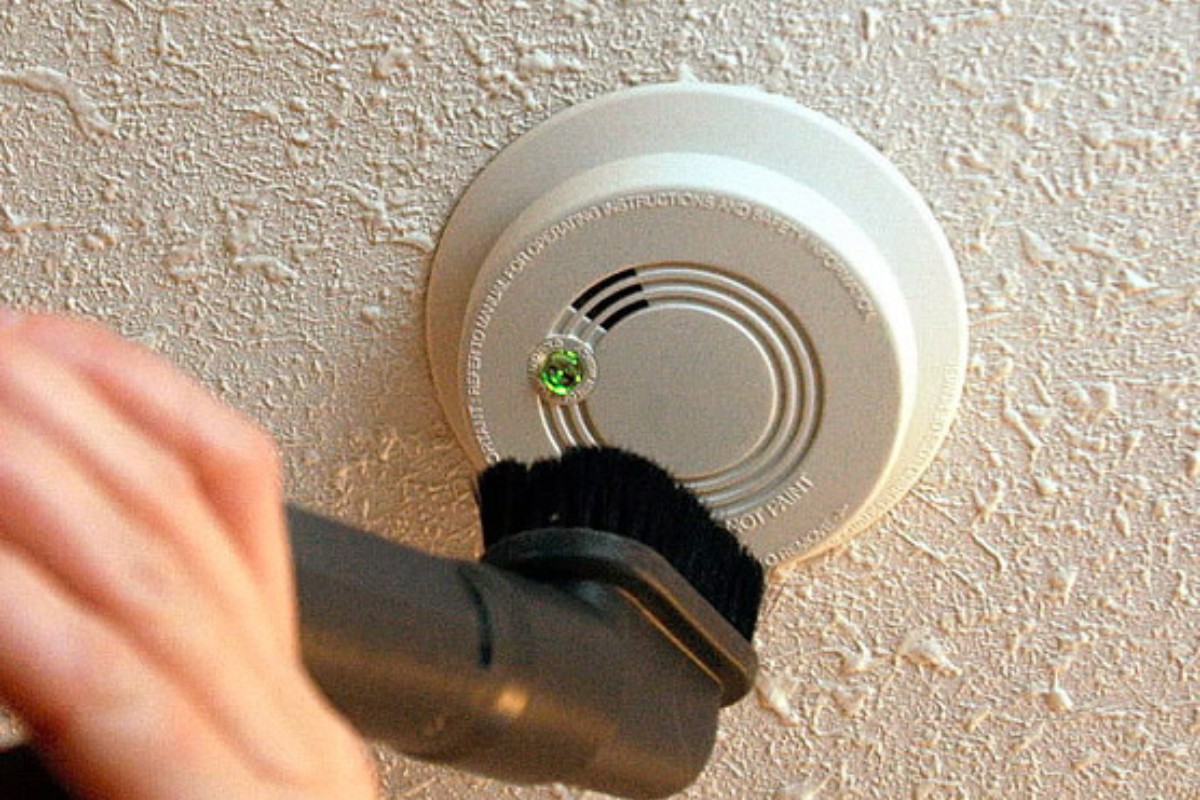
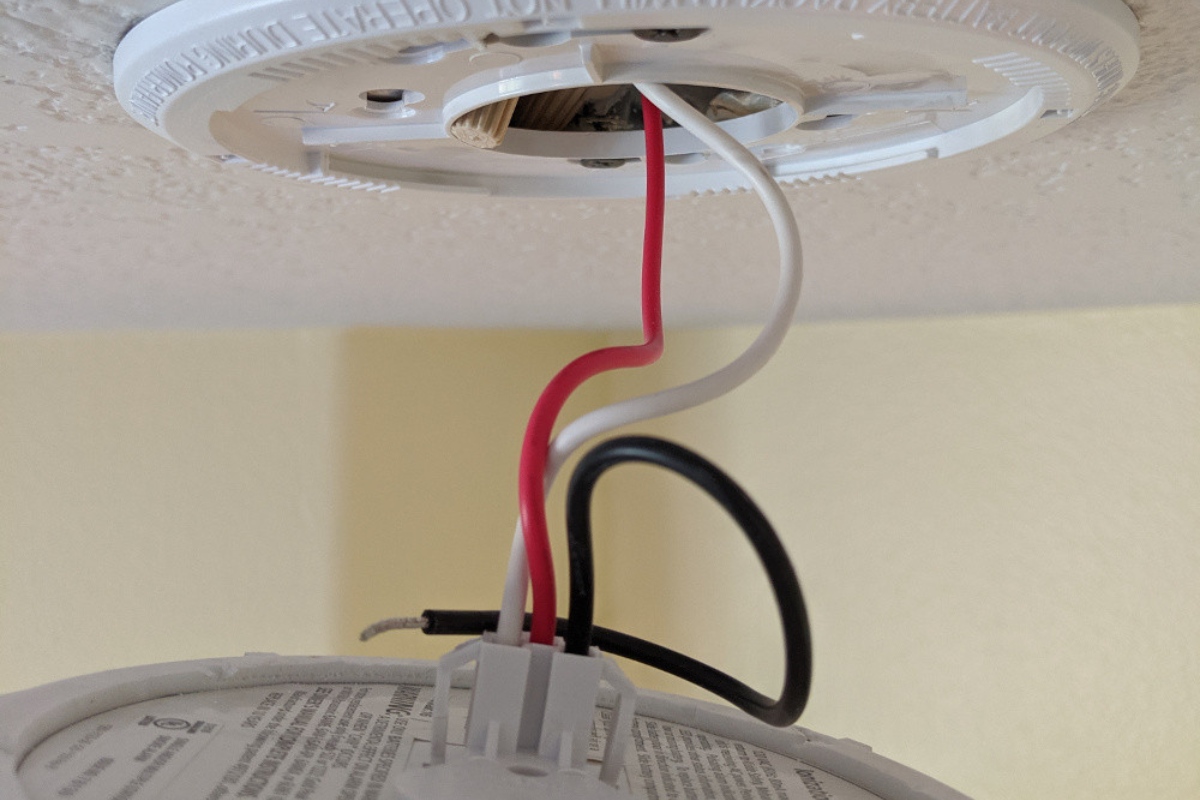
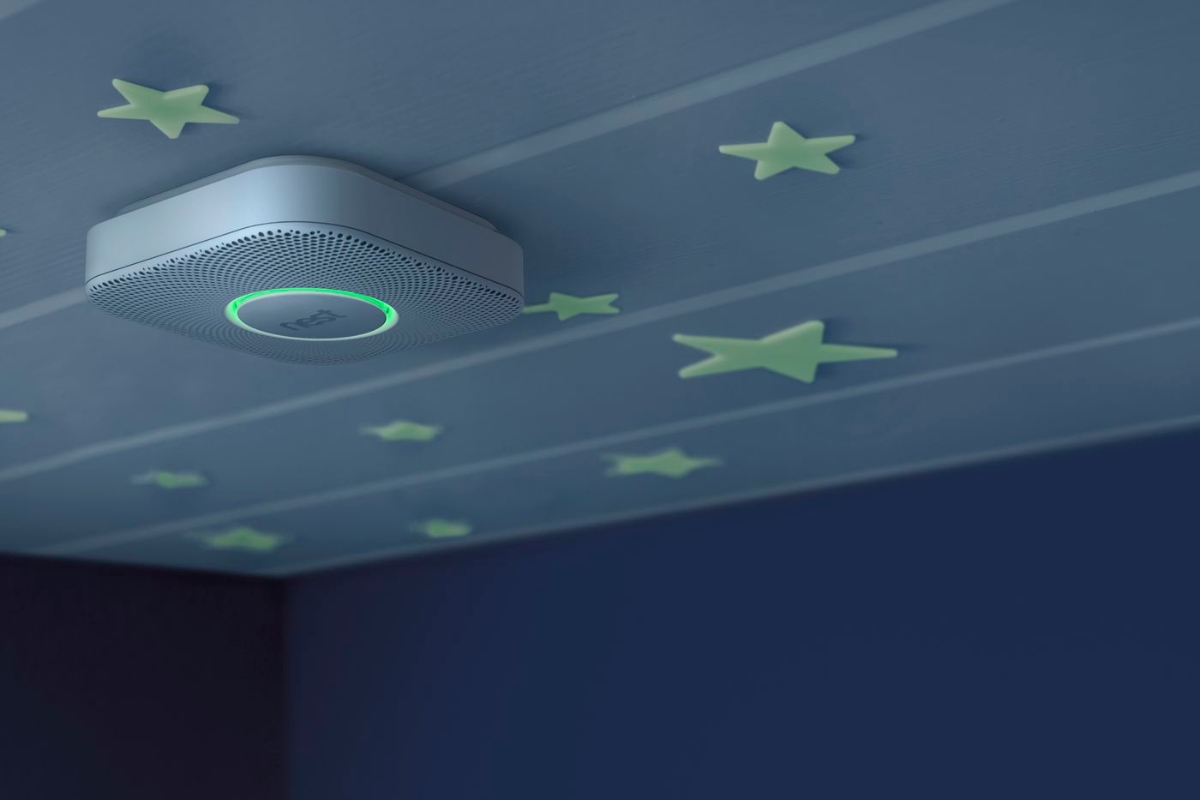
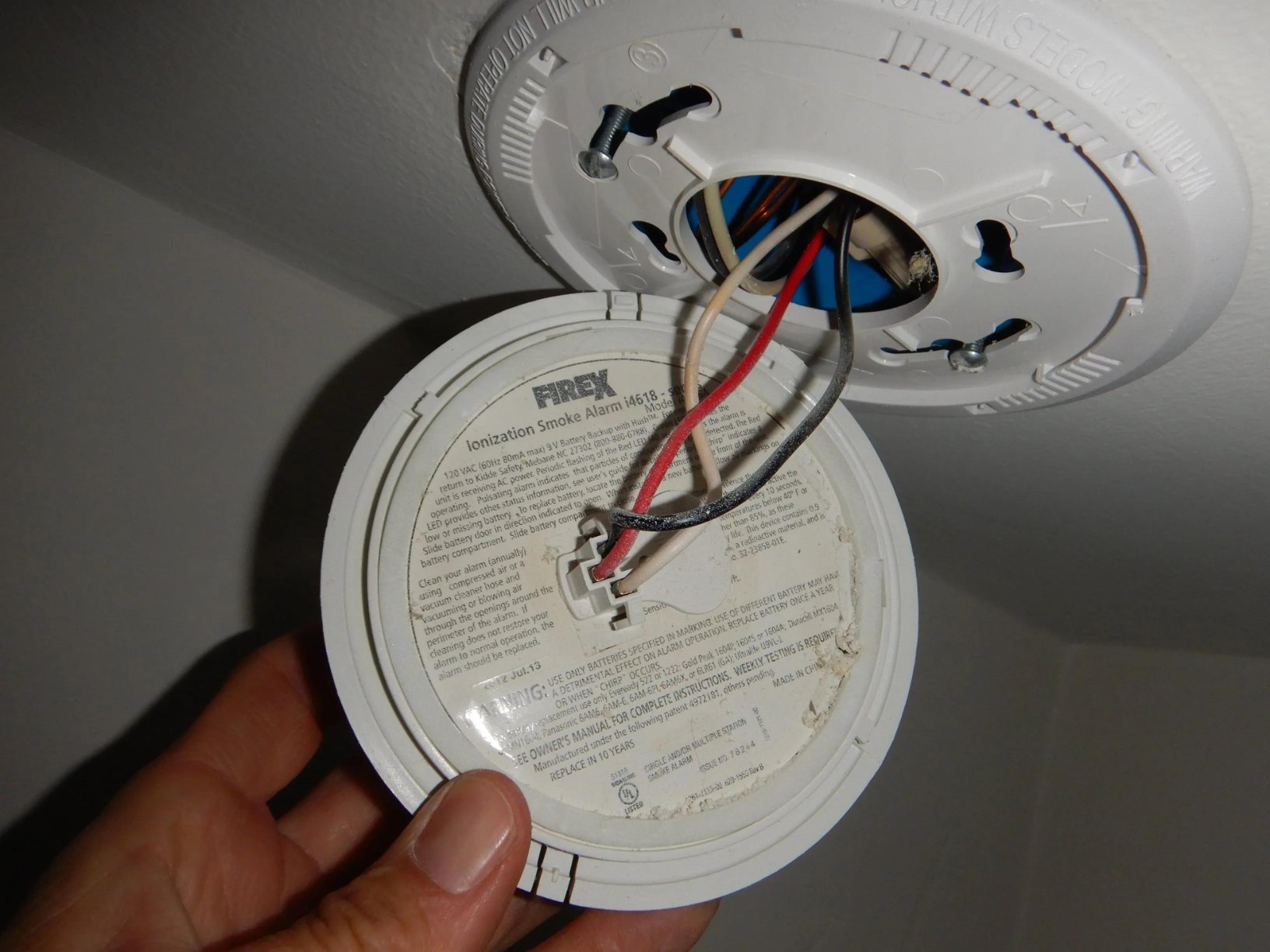

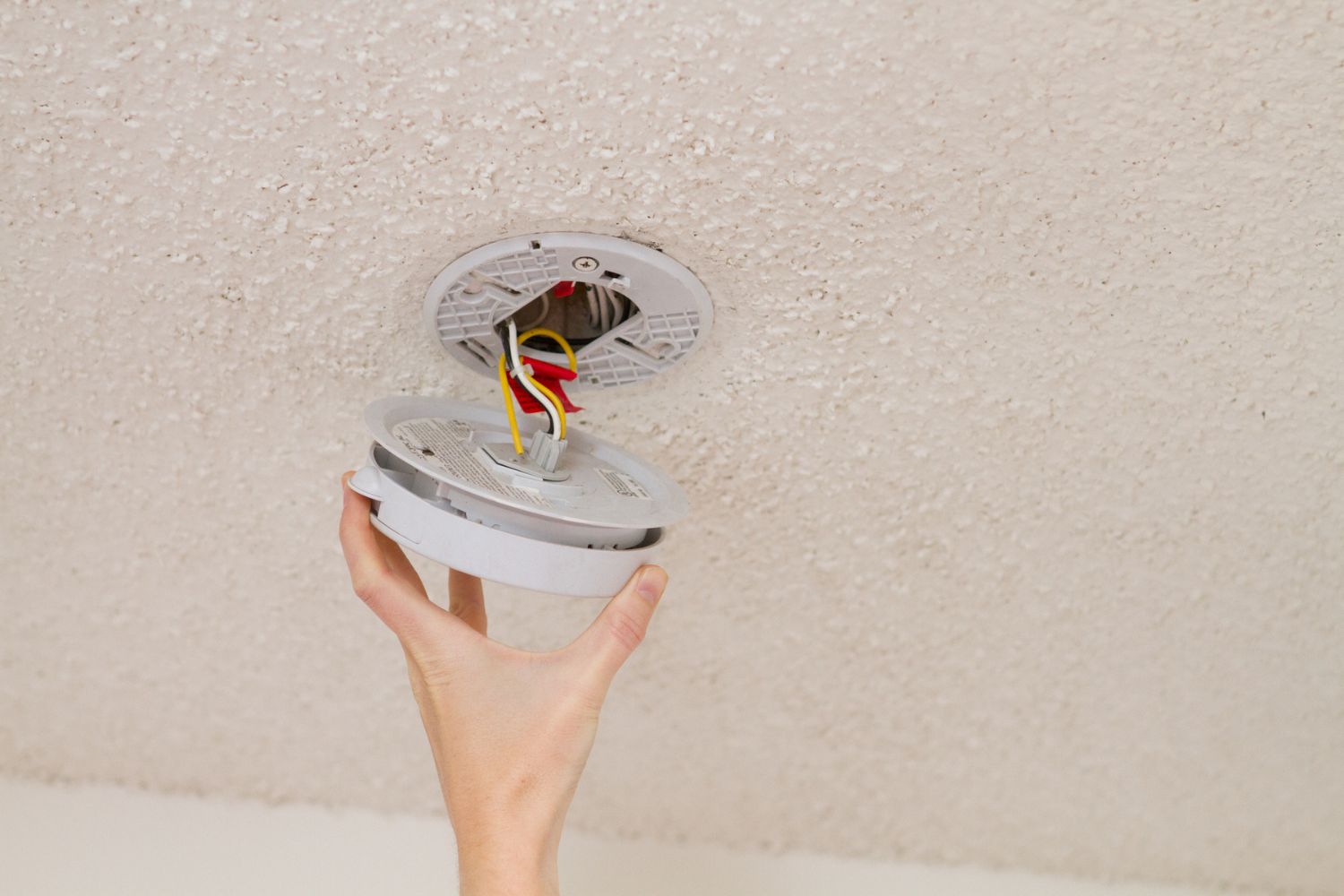
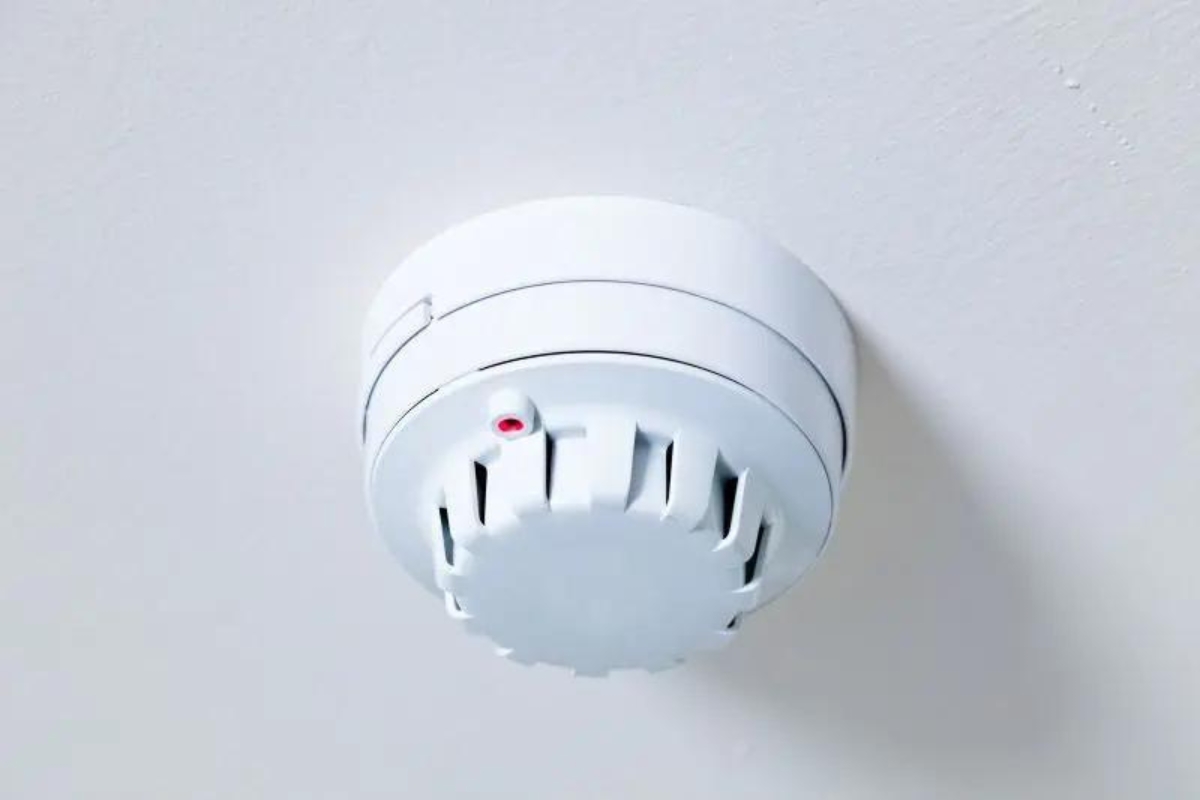
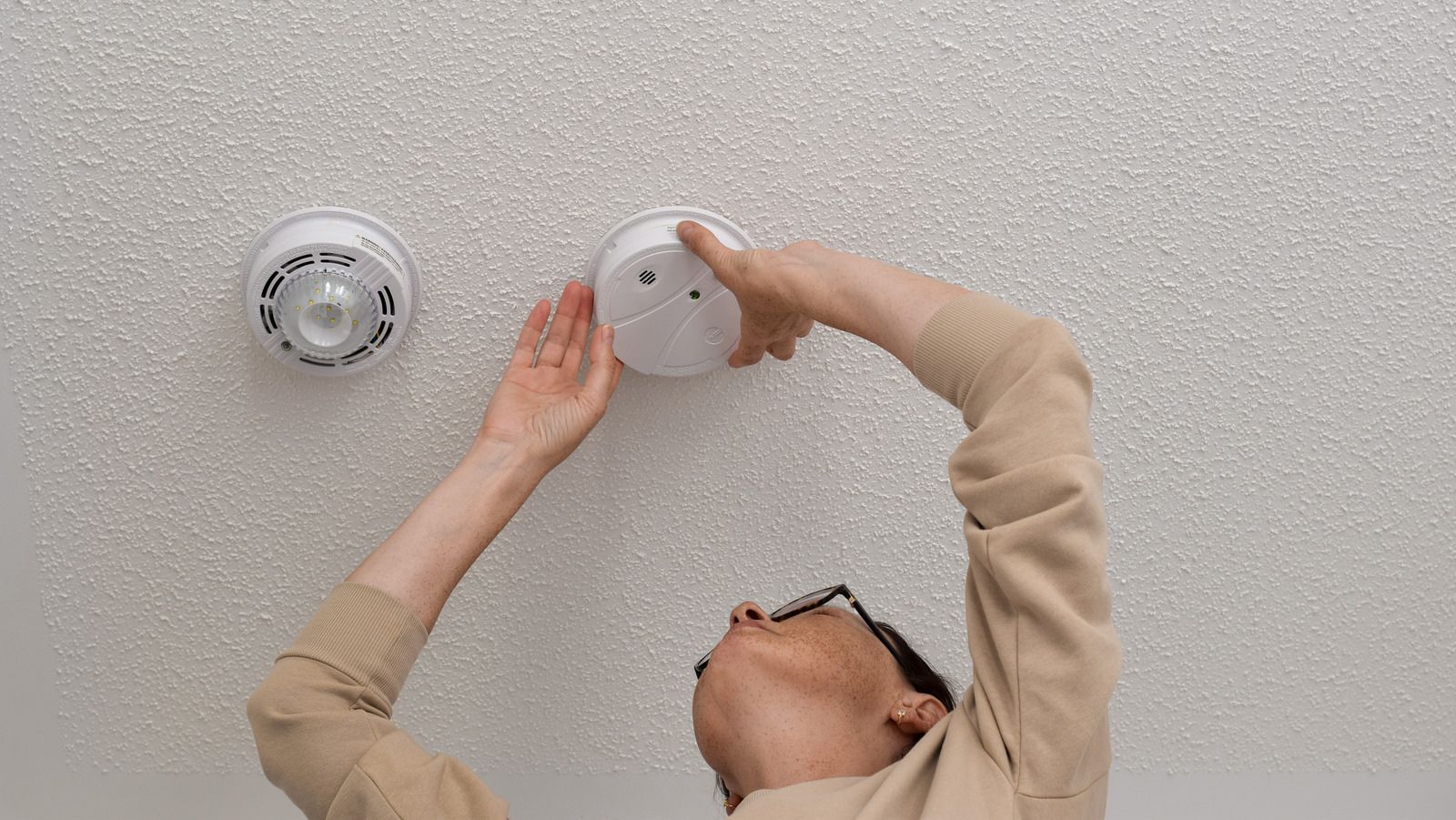
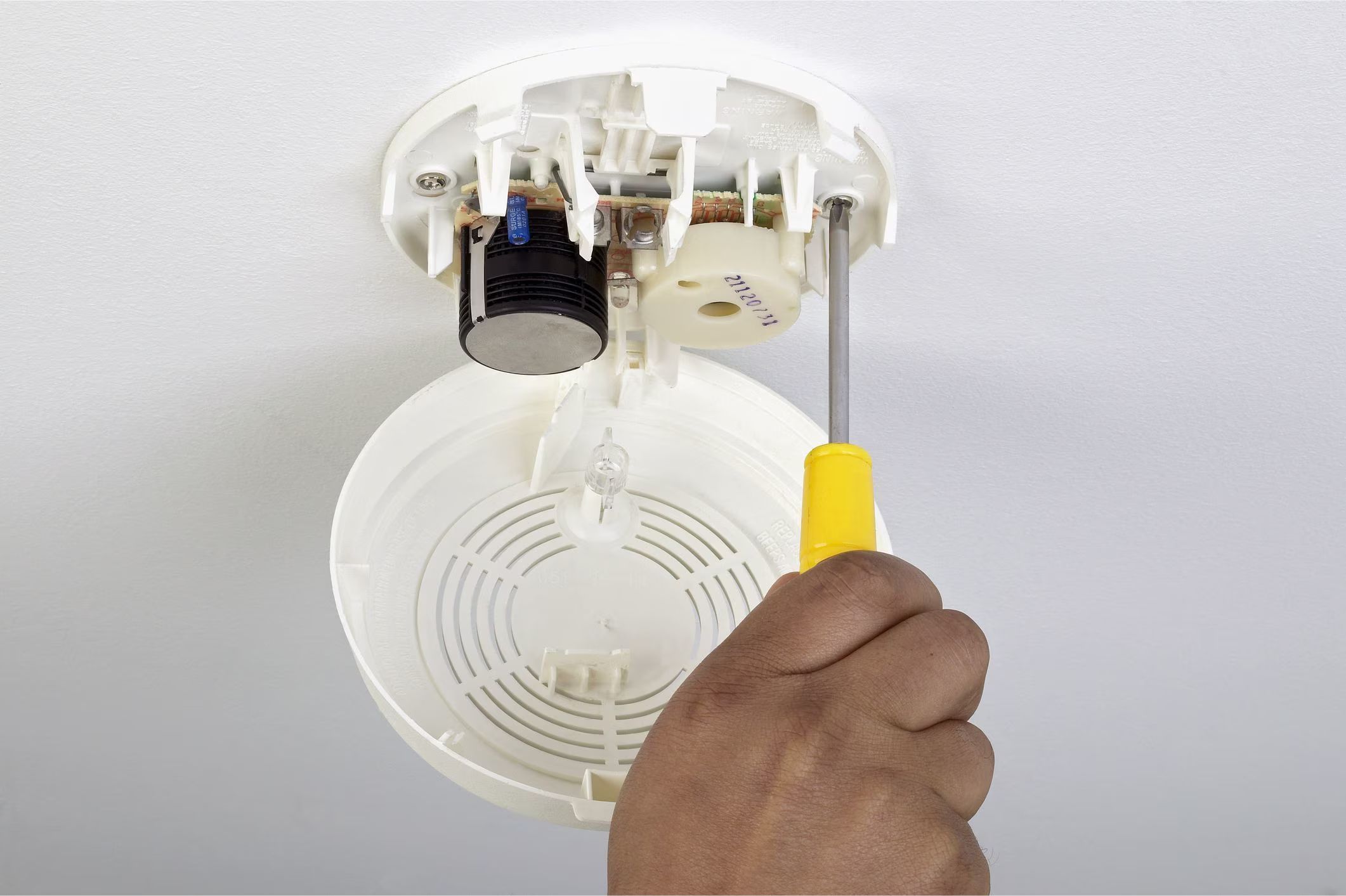
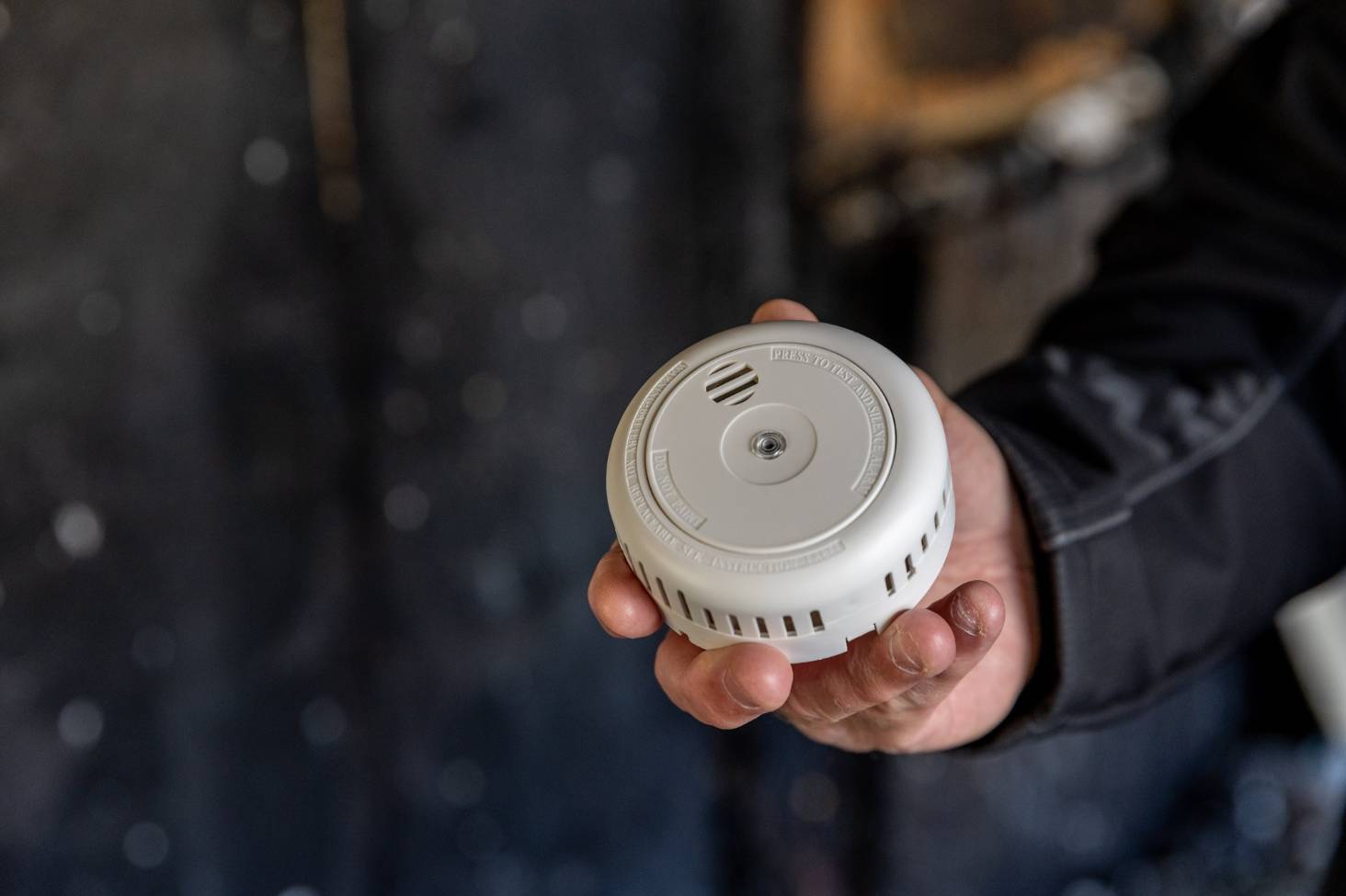
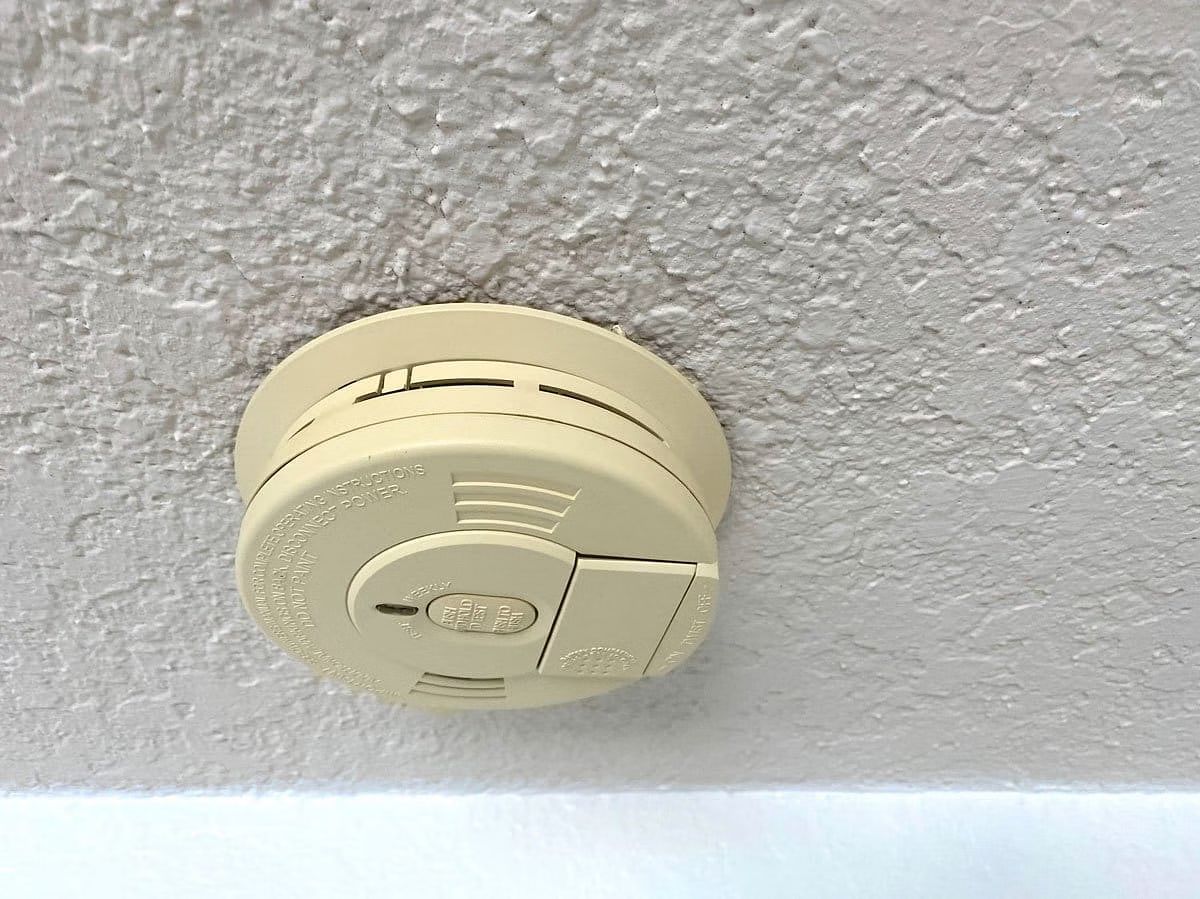
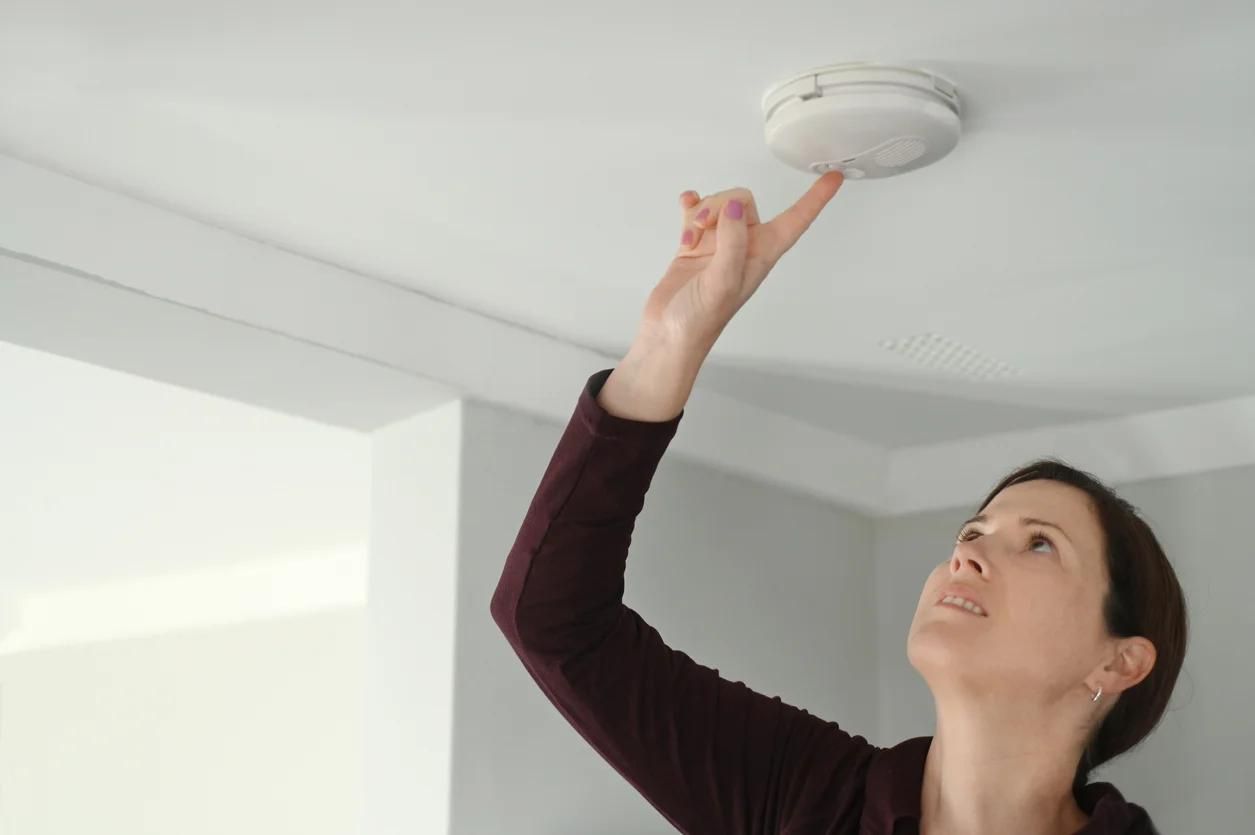
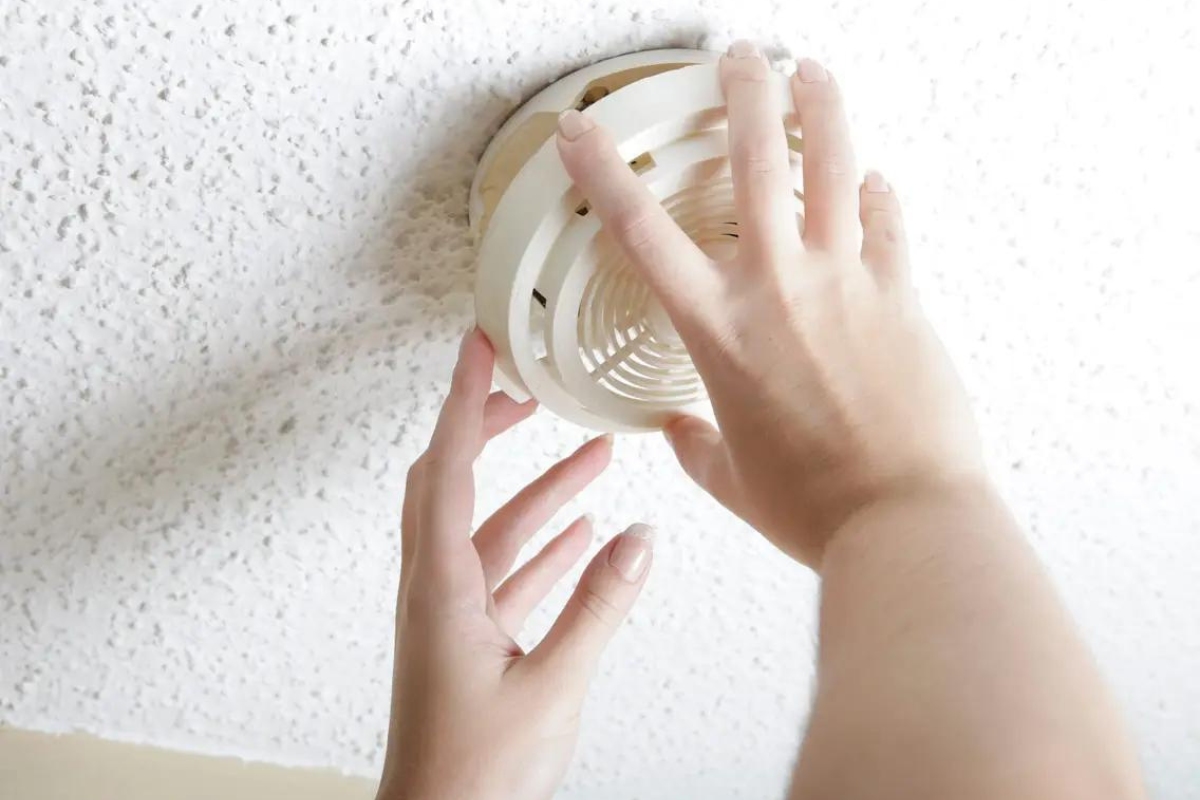
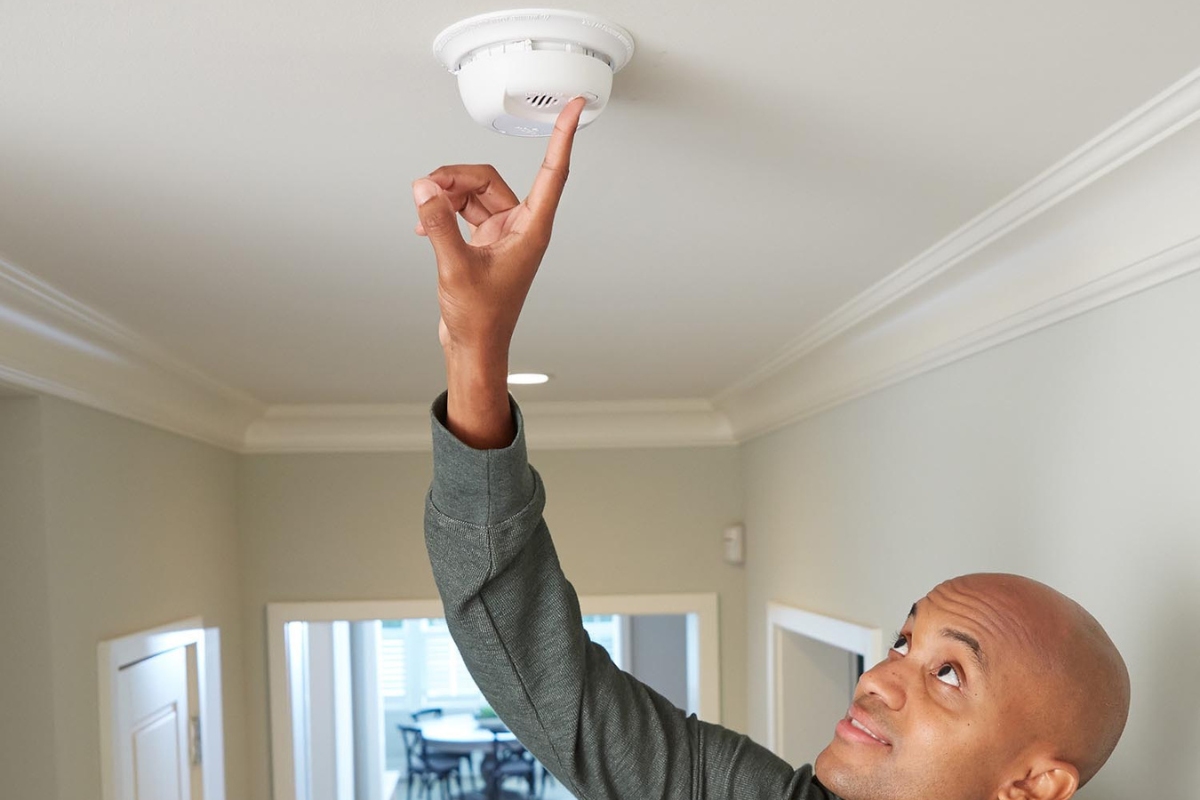

0 thoughts on “Why Would A Hard-Wired Smoke Detector Beep?”